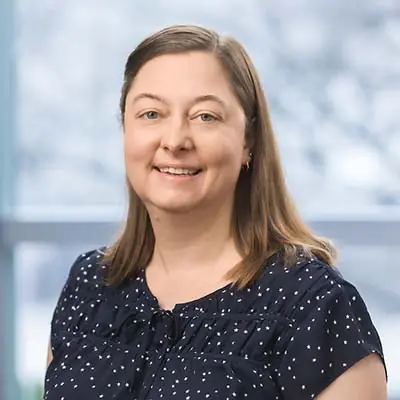About Us
Children’s Nebraska’s Rehabilitation Services offers both inpatient and outpatient pediatric occupational, physical, speech and feeding therapy, as well as outpatient Sports Physical Therapy. We’re the top choice for families in and around Omaha and Lincoln who need pediatric rehabilitation support.
Through play-based therapies, we create a supportive environment for your child to explore, grow and develop. While it may seem like playtime, our rehabilitation services are carefully developed with your child’s health and condition in mind.
Contact Us
Make an Appointment
Phone:
Additional Information:
Dial option 9
Specialty Pediatric Center
Address:
111 N. 84th Street
Omaha, NE 68114
Phone:
Fax:
402.955.5368
Hours:
Monday – Thursday: 8:00 a.m. to 5:00 p.m.
Friday: 8:00 a.m. to Noon
West Omaha
Address:
20502 Roosevelt Street
Elkhorn, NE 68022
Phone:
Fax:
402.955.8356
Hours:
Monday – Thursday: 7:30 a.m. to 6:00 p.m.
Friday: 8:00 a.m. to 4:30 p.m.
Children's Nebraska Rehabilitation Services - Lincoln
Address:
5930 Vandervoort Drive, Suite A
Lincoln, NE 68516
Phone:
Fax:
402.420.2823
Hours:
Monday – Friday: 7:30 a.m. to 6:00 p.m.
Meet Our Providers
Our occupational, physical, speech and feeding therapists are dedicated to helping each child reach their full potential.



Lacy R. Albrecht, SLP
Language: English
Specialties: Feeding, Eating and Swallowing Occupational Therapy, Speech-Language Pathology


Shannon M. Frey, SLP
Language: English
Specialties: Feeding, Eating and Swallowing Occupational Therapy, Speech-Language Pathology

Treatments and Services
Locations
Children’s Rehabilitation Services offers three convenient locations in Omaha and Lincoln.
Children's Nebraska Rehabilitation Services – Lincoln
Related Specialties

Occupational Therapy

Physical Therapy

Sports Physical Therapy

Speech Therapy

Feeding & Swallowing Therapy
Next Steps
Step 1
Your child’s primary or specialty care provider will provide you with a referral.
Step 2
Call 402.955.6799 to schedule an appointment.
Step 3
Provide the following information when you call to make your appointment:
Reason for therapy
Insurance information, including insurance company name, member ID number, group number, customer service phone number and subscriber name
Name of the referring provider
What Sets Us Apart
Pediatric Experts
At Children’s Nebraska's Rehabilitation Services, our team is solely dedicated to pediatrics, understanding the unique needs of children and adolescents.
Collaborative Care
We collaborate with the child’s primary and specialty care providers for seamless communication and coordination of care.
